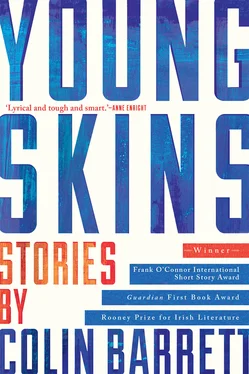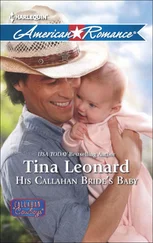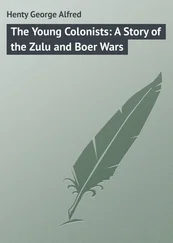Colin Barrett
Young Skins: Stories
My town is nowhere you have been, but you know its ilk. A roundabout off a national road, an industrial estate, a five-screen Cineplex, a century of pubs packed inside the square mile of the town’s limits. The Atlantic is near; the gnarled jawbone of the coastline with its gull-infested promontories is near. Summer evenings, and in the manure-scented pastures of the satellite parishes the Zen bovines lift their heads to contemplate the V8 howls of the boy racers tearing through the back lanes.
I am young, and the young do not number many here, but it is fair to say we have the run of the place.
It is Sunday. The weekend, that three-day festival of attrition, is done. Sunday is the day of purgation and redress; of tenderised brain cases and seesawing stomachs and hollow pledges to never, ever get that twisted again. A day you are happy to see slip by before it ever really gets going.
It’s well after 8 pm, though still bright out, the warm light infused with that happy kind of melancholy that attends a July evening in the West. I am sitting with Tug Cuniffe at a table in the alfresco smoking area of Dockery’s pub. The smoking area is a narrow concrete courtyard to the building’s rear, overlooking the town river. Midges tickle our scalps. A candy-stripe canvas awning extends on cantilevers, and now and then the awning ripples, sail-like, in the breeze.
Ours is the table nearest to the river, and it is soothing to listen to the radio static bristle of the rushing water. There are a dozen other people out here. We know most of them, at least to see, and they all know us. Tug is one many prefer to keep a tidy berth of. He’s called Manchild behind his back. He is big and he is unpredictable, prone to fits of rage and temper tantrums. There are the pills he takes to keep himself on an even keel, but now and then, in a fit of contrariness or out of a sense of misguided self-confidence, he will abandon the medication. Sometimes he’ll admit to the abandonment and sell me on his surplus of pills, but other times he’ll say nothing.
Tug is odd, for he was bred in a family warped by grief, and was himself a manner of ghosteen; Tug’s real name is Brendan, but he was the second Cuniffe boy named Brendan. The mother had a firstborn a couple of years before Tug, but that sliver of a child died at thirteen months old. And then came Tug. He was four when they first took him out to Glanbeigh cemetery, to lay flowers by a lonely blue slab with his own name etched upon it in fissured gilt.
I am hungover. Tug is not. He does not drink, which is a good thing. I’m nursing a pint, downing it so slowly it’s already lost its fizz.
‘How’s the head, Jimmy?’ Tug caws.
He is in a good mood, a good, good, good but edgy, edgy, edgy mood.
‘Not so hot,’ I admit.
‘Was it Quillinan’s Friday?’
‘Quillinan’s,’ I say, ‘then Shepherd’s, then Fandango’s. The same story Saturday.’
‘The ride?’ he inquires.
‘Marlene Davey.’
‘Gosh,’ Tug says. ‘Gosh, gosh, gosh.’
He worries his molars with his tongue.
Tug is twenty-four to my twenty-five, though he looks ten years older. As far as I’m aware, his virginity remains unshed. Back in our school days, the convent girls and all their mammies were goo-goo-eyed over Tug. He was a handsome lad, all up through his teens, but by sixteen had begun to pile on the pounds, and the pounds stuck. The weight gives him a lugubrious air; the management and conveyance of his bulk is an involved and sapping enterprise. He keeps his bonce shaved tight and wears dark baggy clothing, modelling his appearance after Brando in Apocalypse Now .
‘Well, me and Marlene go back a ways,’ I say.
Which is true. Marlene is the nearest thing I’ve had to a steady girlfriend — and if we’ve never quite been on we’ve never quite been off, either, even after Mark Cuculann got her pregnant last year. She had the baby, just after Christmas, a boy, and named him David for her dear departed da.
I ran into her in Fandango’s on the Friday. There was the usual crowd; micro-minied girls on spike heels, explosively frizzed hair, spray-tan mahogany décolletage. There were donkey-necked boys in button-down tablecloth-pattern shirts, farmers’ sons who wear their shirtsleeves rolled up past the elbows, as if at any moment they might be called upon to pull a calf out of a cow’s steaming nethers. Fandango’s was a hot box. Neon strobed and pulsed, dry ice fumed in the air. Libidinal bass juddered the windowless walls. I was sinking shots at the bar with Dessie Roberts when she crackled in my periphery. She’d already seen me and was swanning over. We exchanged bashful, familiar smiles, smiles that knew exactly what was coming.
There is the comfort of routine in our routine but also the mystery of that routine’s persistence.
Marlene lives with her consenting, pragmatic mother, Angie, who even at three in the morning was up and sat at the kitchen table, placidly leafing through a TV listings magazine and supping a cold tea. She was happy to see me, Marlene’s ma. She filled the kettle and asked if we wanted a cuppa. We demurred. She told us wee David was sound asleep upstairs, and be sure not to wake him. In Marlene’s bedroom I bellyflopped onto the cool duvet; her childhood menagerie of stuffed animals was piled at the end of the bed. I was trying to recall the names of each button-eyed piglet and bunny as Marlene tugged my trousers down over my calves.
‘Boopsy, Winnie, Flaps. . Rupert?’
Now my calves are paltry things, measly lengths of pale, undefined muscle all scribbled with curly black hairs; their enduring ugliness startles me anytime I glimpse them in a mirror. But Marlene began to knead them gently with her fingers. She worked her way up to my thighs and hissed, ‘Flip over.’ You have to appreciate a girl who can encounter a pair of calves as unpleasant as mine and still want to get up on you.
‘She’s a nice one,’ Tug says.
A fly lands on his head and mills in the stubble. Tug seems not to notice. I want to reach out and smack it.
‘That she is,’ I say, instead, and take another sup of my pint.
And just like that Marlene appears. This happens frequently in this town; incant a body’s name and, lo, they appear. She comes through the double doors in cut-off jeans, sunglasses pushed up into her red ringlets, zestfully licking an ice-cream cone. She’s wearing a canary-yellow belly top, the better to show off her stomach, aerobicised back to greyhound tautness since the baby. A sundial tattoo circumscribes her navel. Her eyes are verdigris, and if it wasn’t for the acne scars worming across her cheeks, she’d be a beauty, my Marlene.
Mark Cuculann follows her in. Marlene sees me and gives a chin-jut in my direction; an acknowledgment, but a wary one; wary of the fact that Cuculann is there, that big Tug Cuniffe is by my side.
‘There’s Marlene,’ Tug says.
‘Uh huh.’
‘So is she with the Cuculann fella then or what?’
I shrug my shoulders. They have a baby so it’s only fair they play Mammy and Daddy; it’s what they are. Whatever else she does or does not do with Cuculann is fine by me, I tell myself. I tell myself that if anything I should feel a measure of gratitude towards the lad, for taking the paternity bullet I dodged.
‘She’s looking fair sexy these days,’ Tug says. ‘You going to go over say hello?’
‘I said hello enough Friday night.’
‘Better off out of it alright, maybe,’ Tug says.
I slide my palm over my pint like a lid and tap the rim with my fingers.
Читать дальше












